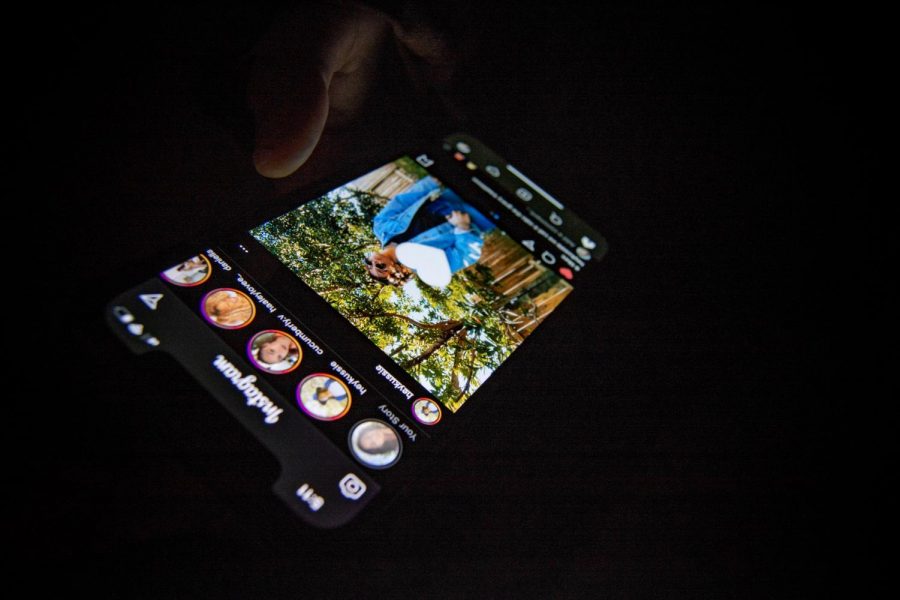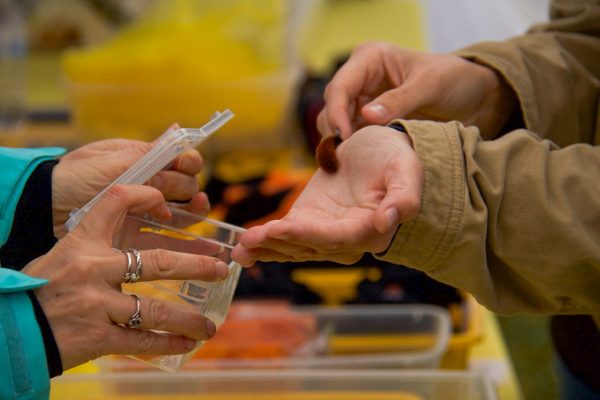Goodbye ‘likes’: Students weigh in on new Instagram test
Instagram plans to gradually eliminate public “likes” from the platform as a test to benefit users. The feature can potentially harm one’s self-worth “if they don’t get a certain amount of likes,” according to freshman Ronnie Pugh.
January 22, 2020
In the eyes of freshman journalism major Ronnie Pugh, Instagram likes play a large role in some college students’ lives.
“I think a lot of people want that popular status, so they try to get more likes, or they’ll post a photo and then (think), ‘Oh, it didn’t get that many likes, so I’ll take it down and post another one,’” Pugh said.
After several tests were run in countries like Canada and Brazil, Instagram announced that it will test hiding likes on photos for certain users in the United States. According to the Pew Research Center, 89% of people aged 18-29 are on social media.
According to the social media giant, users will still see who has liked their posts, but their followers will not.
Not all users will immediately experience the change, but removing likes on the platform could be the future of the social network.
Sophomore elementary education major Susannah Doss said the change is positive and will shape the way people view the platform.
“I feel like, in the beginning, the people who go for validation, it will negatively affect them, but I feel like it’s one of those things that it’s going to upset you for a little while. But, in the end, it’s going to be more positive than negative,” Doss said.
According to a 2017 report by the Royal Society for Public Health, Instagram was found to have a harmful overall effect on young people’s mental health, stating that the network “negatively impacts body image and sleep, increases bullying and ‘FOMO’ (fear of missing out).”
It also stated that the social media network “leads to greater feelings of anxiety, depression and loneliness.”
Chris Hogan, director and chief psychologist of the Counseling Center, said one aspect that may contribute to an unhealthy relationship with social media is the amount of time students spend on it.
“One of the things that we might see in the counseling center are things getting out of balance for people, so they are spending more time on social media, and sometimes, they don’t even realize how many hours they might be spending on social media, and that it may be taking away from some other positive things in their life,” Hogan said.
Another concern surrounding the platform is the lack of authenticity and the use of likes to validate it.
Senior marketing major Madi Rhodes said removing likes would allow users to spend less time worrying about validation from others.
“A lot of people edit their pictures, not just put a filter on it, but physically edit themselves and their peers in their pictures,” Rhodes said. “That’s totally unhealthy and not good because you should be able to show off exactly who you are, and you shouldn’t edit yourselves to please others.”
Hogan said the change may fix some problems with Instagram, but not all.
“I think it will change a facet of it, like the criticism that might come or the implied criticism that if nobody likes what I posted,” Hogan said. “So, that might help that component, but there still may be the component of viewing how happy other people seemed to be when I don’t feel that way. When in reality, everybody is more similar than people realize sometimes.”
For students who have an unhealthy relationship with Instagram and other social media, Hogan suggests engaging in other activities that are better for your mental health, like being outside, exercising and fostering relationships with people.
“There’s lots of good research around being outside, being involved in nature, which is, oftentimes, the opposite of what we might be doing if we’re sitting inside, and we’re scrolling on social media,” Hogan said. “Being engaged in nature is really healthy for us; engaging in some exercise, even if it’s 20 minutes a day for a brisk walk makes a difference for people’s mental health.”
Although Instagram is only in the test phases of this change, Pugh said he hopes this change comes to the United States.
“I think they should apply (the change) here because then people’s feelings wouldn’t get hurt if they don’t get a certain amount of likes, or they’re not judging themselves or judging anyone else based on how many likes they get,” Pugh said.
















